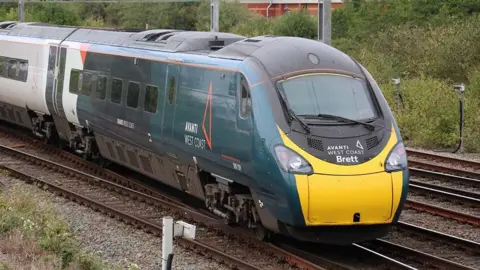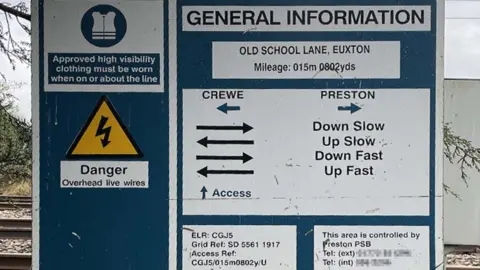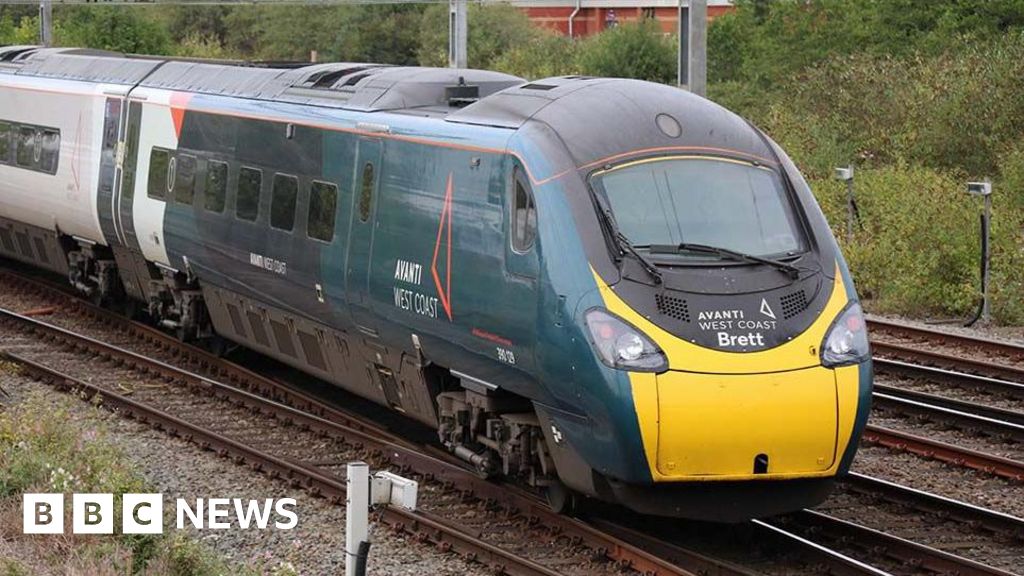 BBC
BBCAn engineer was two seconds from being hit by a train travelling at 110mph (177kmh), a report has said.
The worker was on the track with a technician near Euxton Junction at about 14:14 GMT on 14 March.
A member of the public – on a footbridge – shouted to them, and the train driver sounded a warning horn, allowing them to move just in time.
The Rail Accident Investigation Branch (RAIB) said the engineer had misidentified which of the lines had been blocked to train movements – and the error was not challenged by other members of the team during a briefing.
 RAIB
RAIBThe track worker involved was a controller of site safety who was working with a technician doing maintenance work for Network Rail.
The controller had thought the “up fast line” on the West Coast Main Line in Lancashire had been blocked to trains.
However, the blockage they had agreed with the signaller applied to the adjacent “down fast line”, the RAIB said.
When the controller briefed the technician, the blockage was only referred to as “on the closest line” and did not specify which one was closed.
‘Two seconds’ to safety
As the train approached, it was seen by the technician, who expected it to be routed on to another line and when it did not he shouted a warning, but the engineer was too far away to hear him, the RAIB said.
The member of the public and the train driver’s horn alerted him and he moved “to a position of safety approximately two seconds before the train passed them”, the report said.
The team had worked together for a number of years and were familiar with each other and the location, the RAIB said.
It said team members said they were willing to challenge errors in briefings, and that they had done so previously.
The RAIB investigators said if specified line names had been used in the safety briefing, the workers “would have realised the misidentification of the line which had occurred”.


